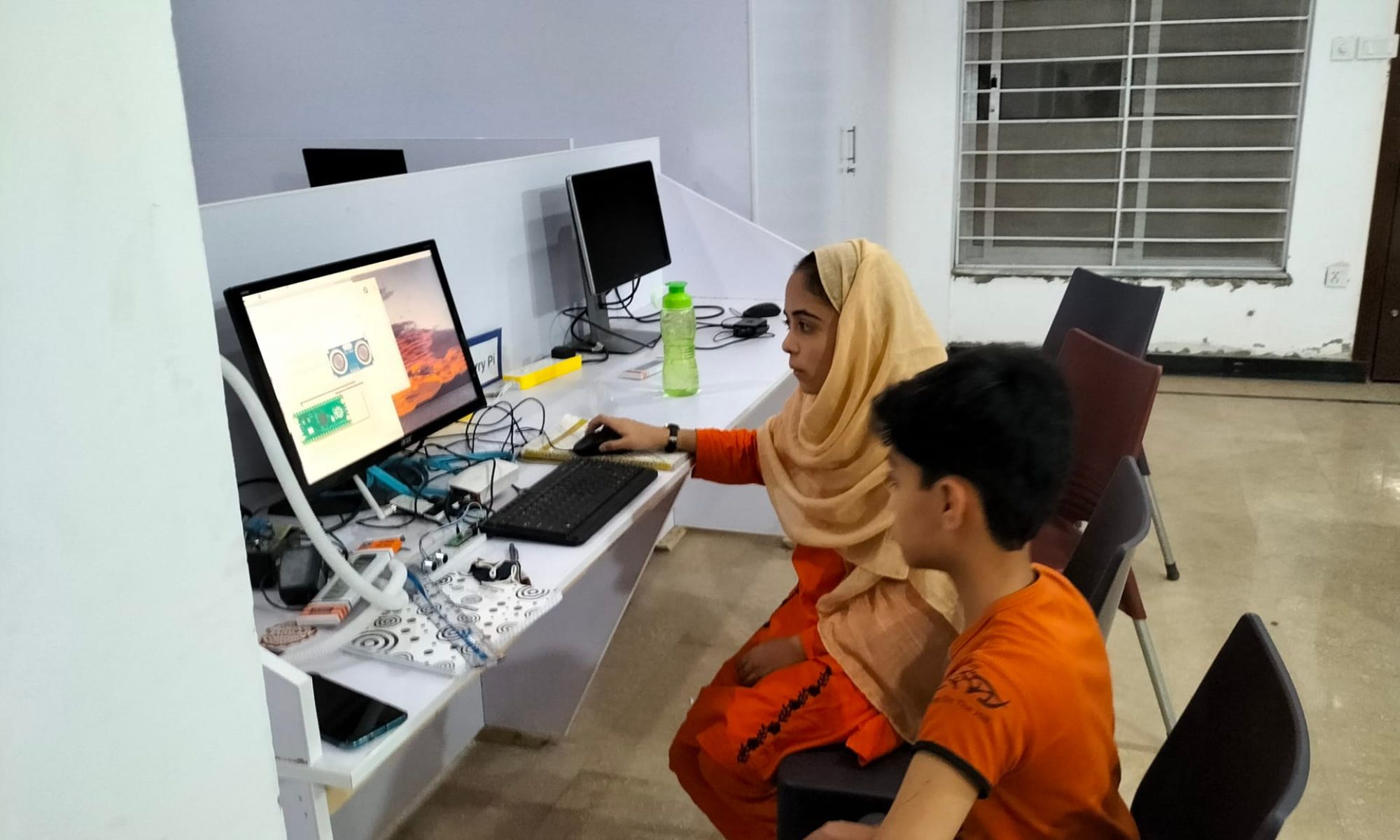During a routine surfing on web in 2015, I cam across a little single board computer, launched in the UK by a unique name of Raspberry Pi. In a following article, I read that it can be used for introducing Coding, Physical Computing and as well as an Educational Content Server in remote areas where there is poor or no Internet connection. It suited all what I was looking for. At that time it looked quite reasonably priced, although still beyond the purchasing power of an ordinary school in a developing country. It immediately reminded me of an equally nice but failed 2005 launch, of One Laptop Per Child (OLPC) program that was intended to provide an affordable laptop to children in the whole world. Raspberry Pi, however, looked different and I decided to procure a few for testing and trying here in Peshawar, Pakistan. I managed to purchase two Raspberry Pi 2 through personal contacts and resources. What happened next is a story of successes and failures that is still continuing with no end in the foresight.
The First Raspberry Pi assembly on a wooden board in a school:
On Saturday 2nd May 2015 at 11; 30 AM, a government girls school in Malot, a small village in the outskirts of Islamabad, received a full working system of solar powered Raspberry Pi.
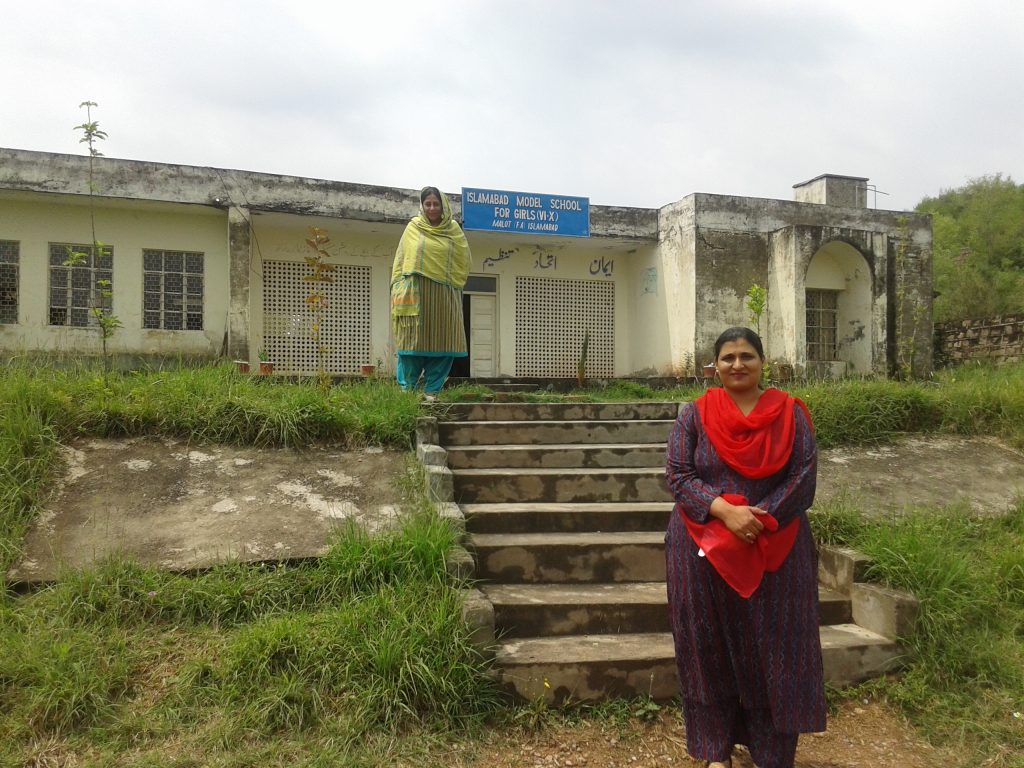
A Raspberry Pi 2 was screwed on top of a wooden plank. The school had no stable electricity supply and a solar power system therefore became a necessity. I secured a dry battery, a solar charge controller and a single medium sized solar panel. The panel was mounted on the roof top with a cable coming down to the solar charge controller, having a dry 12 volts 10 ampere battery, connected as power storage. The power became available but it was 12 Volts at nearly 3 amperes. I found it easy to down convert 12 volts to 5 volts, required to power the Raspberry Pi, with a car mobile phone charger.
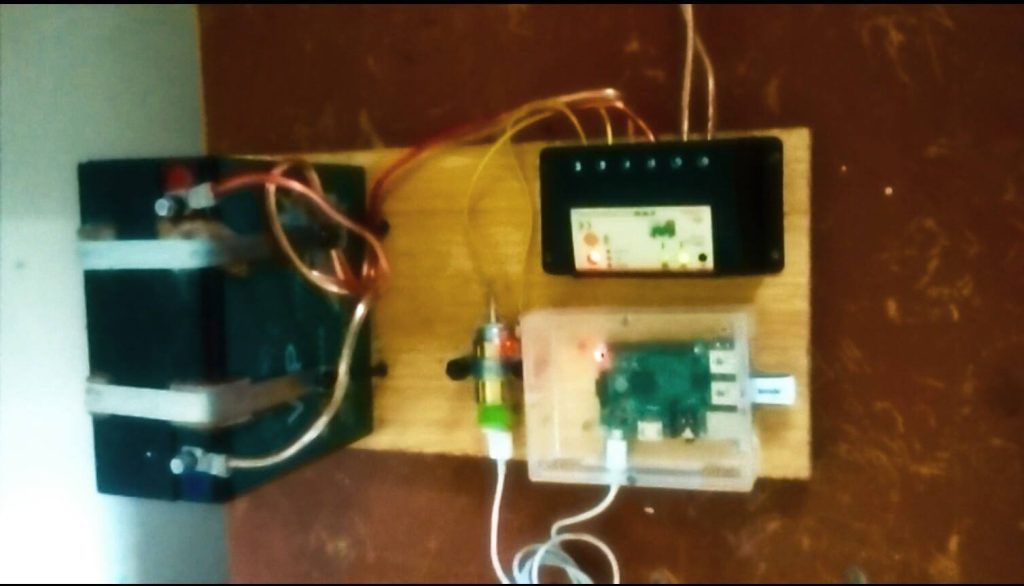
The entire assembly can be seen in the above image.
A Pakistani friend based in the US donated Tablets and headsets and also paid for the solar equipment.
Raspberry pi was loaded with nearly 3000 Khan Academy lectures from KA Lite project of the Learning Equality. An excellent resource available at that time.
Within minutes teachers were combing through lectures in Math, Physics, Chemistry and Biology.
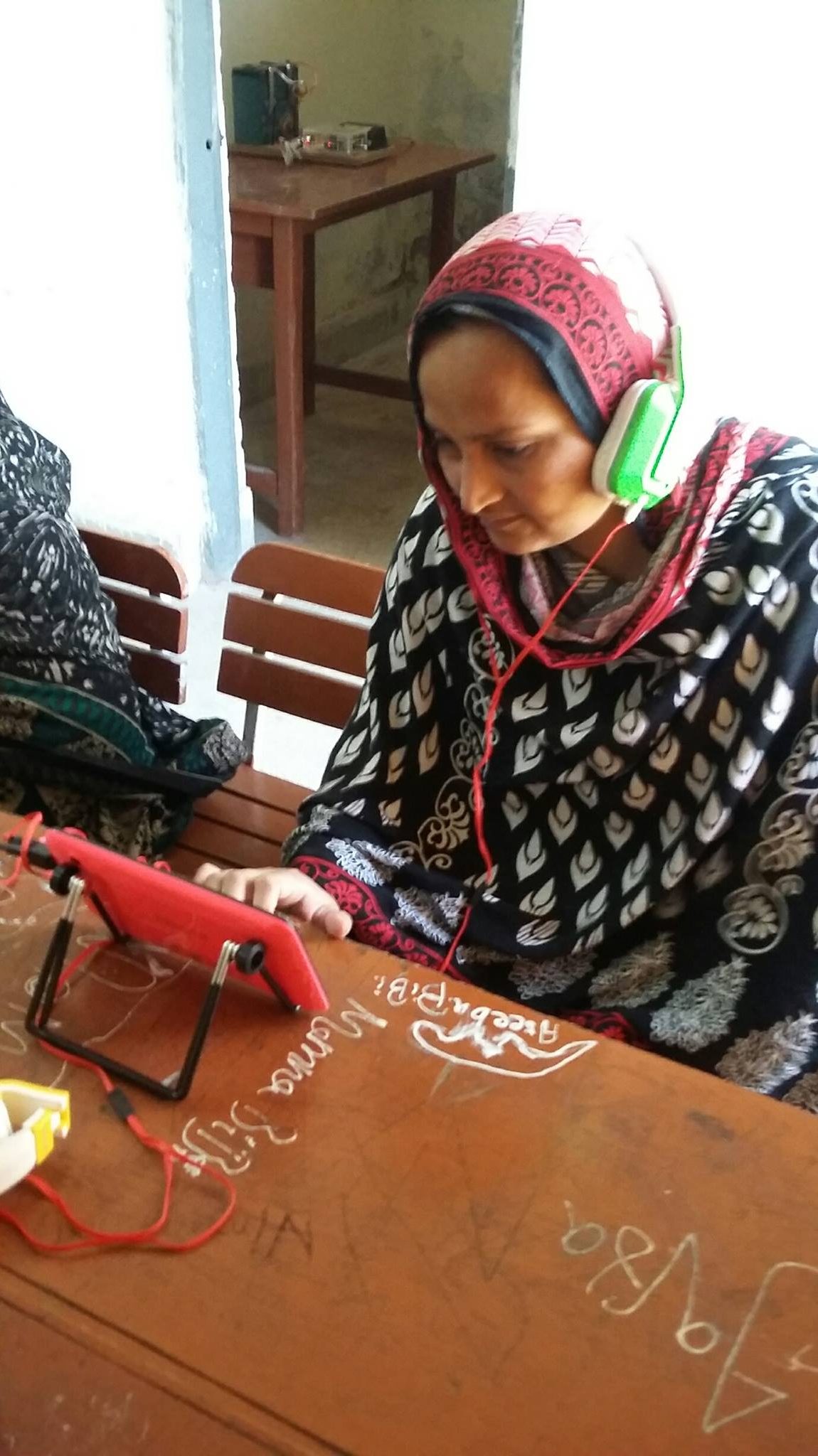
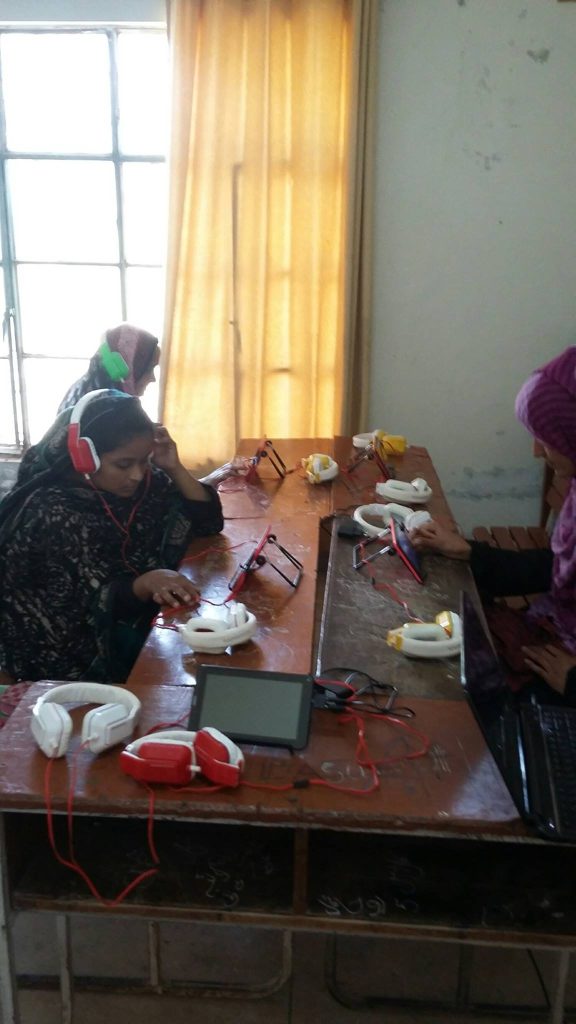
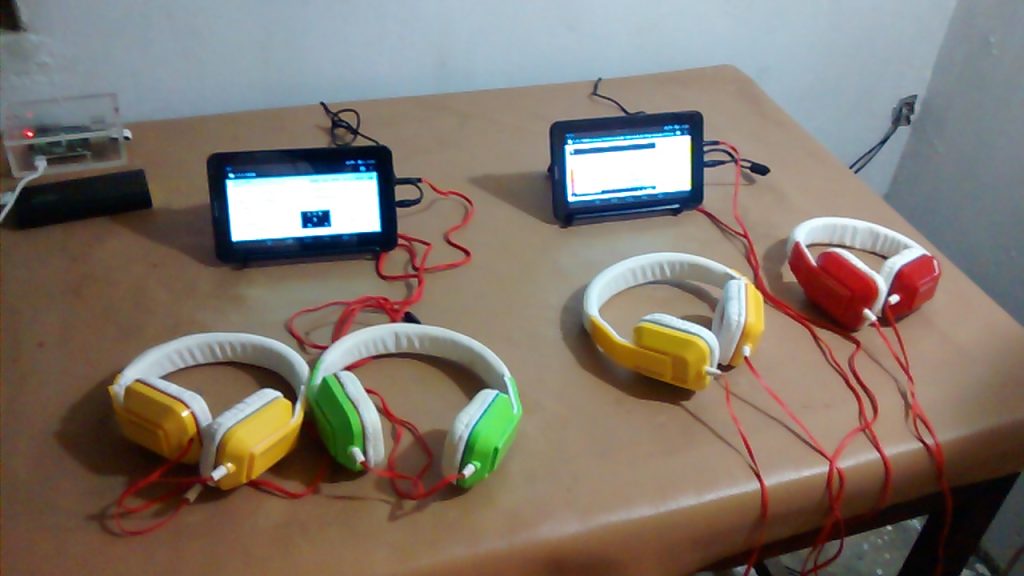
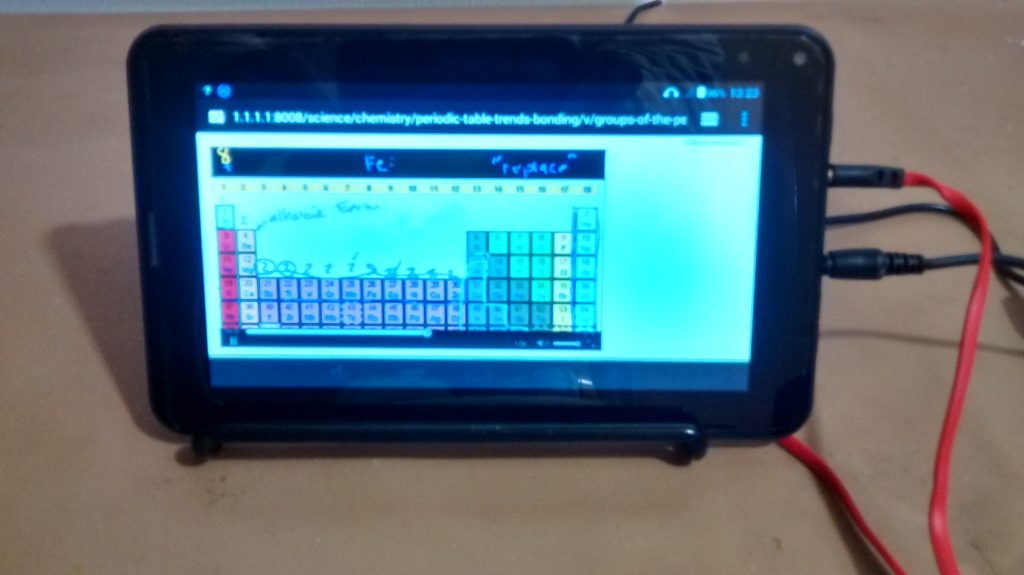
The entire experiment was coordinated by an extremely talented and tech savvy Principal of the school.
Teachers were trained, students were given the exposure to the new technology and every thing was going well when the tragedy struck.
The Principal, along with the trained teachers were transferred by the School Directorate in a routine reshuffle to scattered schools around. The whole experiment stalled. The Principal requested for removal of the equipment for fear of loss as there was a planed repair work also to be carried out during the upcoming vacations. That was the end of the first experiment.
The only comments that I received as feed back were:
a. Teachers and Students were finding difficulty in listening to the American Accent
b. The contents are not exactly as they were in their own curricula and were also not presented in the same order.
c. A few teachers demanded voice over in Urdu for science subjects and inclusion of content in social sciences too as part of the syllabus.
